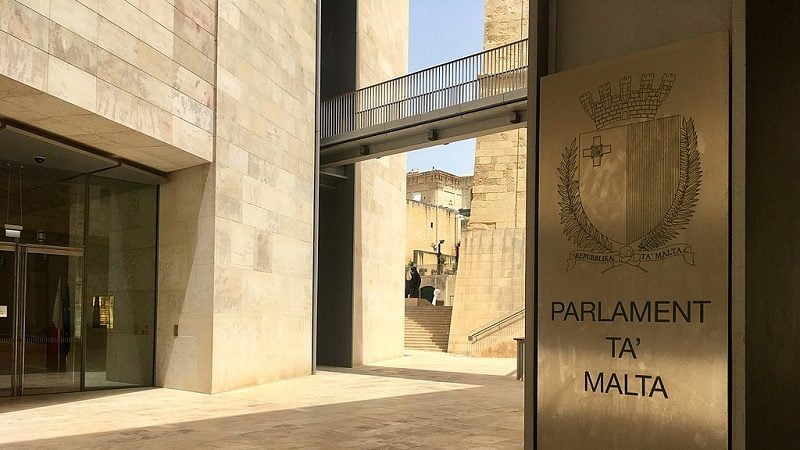The Shift’s analysis of the first set of rule of law reforms presented to parliament reveals key deviations from the recent opinion of the Venice Commission. Only four Bills out of 10 presented to parliament last Thursday by Justice Minister Edward Zammit Lewis have to date been published.
The Council of Europe’s Venice Commission had called for broader reforms, but had commented that “as with any preliminary proposal or concept paper, a full assessment can only be made when concrete texts are available”.
The concrete texts now display bad faith in key appointments – those of the President and the Chief Justice.
The government had said that these would be elected through a two-thirds majority vote in parliament, and the Venice Commission had questioned what would happen if a two-thirds majority remains elusive, referring to what it called an “anti-deadlock mechanism”.
The government had suggested that the fallback position would be appointment by simple parliamentary majority.
The Commission had recommended that the “an anti-deadlock mechanism should provide a strong incentive for both majority and opposition to come to an agreement. For positions in the judiciary reverting to a neutral body is clearly preferable to a lowering of the [parliamentary] majority required for election.”
It then recommended that if parliament could not agree on a candidate, the appointment would instead be made by the Constitutional Court – “a neutral body.”
Instead, in the Bill, the government opted for its original position: after two votes, the Chief Justice and President would then be elected by simple majority.
The catch with this is that the government of the day could present a candidate of its choice safe in the knowledge that it would prevail in any case – if the opposition votes against twice, on the third vote the nominee would be elected by the majority tally of votes of the Party in government. (MPs in Malta almost always vote in line with the Party.)
The significance of this is that the government, if it so chooses, would have the potential to retain influence on the judiciary through these two key appointees.
The Chief Justice assigns work to members of the judiciary and can juggle members of the judiciary between different courts at his or her discretion. That way, through its potential proxy, the government could potentially influence which member of judiciary gets appointed to which court.
A rigorous Constitutional Court judge, for example, could be moved to a court that’s inconsequential for the government, such as the Family Court.
And the President gets to appoint magistrates or judges from a shortlist of three for every arising vacancy.
An alternative system of appointments of these two key officials, in cases where two-thirds parliamentary majority remains elusive, would be for the creation of a Council of State – as recommended by the Ombudsman, which would be made up of, among others, retired presidents and chief justices and constitutionally-entrenched officials – and then leave it to the Council to appoint the Chief Justice and President.
This would offer some protection against the potential for the government of the day to elect the person of its choice, which would be possible under the law as proposed now.
The Bill on the system of removal of errant members of the judiciary is also faulty – and unworkable. Its provisions hold that in the event that a member of the judiciary is found to have committed misconduct serious enough for his or her removal, the committee that investigates errant judiciary would then pass the case to the Commission for the Administration of Justice for its proceedings or deliberations.
The Commission for the Administration of Justice is the highest justice organ in Malta. It is a high level Commission chaired by the President.
Yet two members of the Commission are lawyers active in litigation. These appointees of the respective political leaders are lawyers who have in the past represented former Prime Minister Joseph Muscat and current Opposition leader Adrian Delia.
It is well established in the legal system of the European Court of Human Rights (ECHR) that lawyers active in litigation cannot be members of bodies that remove or impeach members of the judiciary.
In fact, there is currently a case in Malta’s Constitutional Court, which has not gotten underway yet, in which lawyer Franco Debono is pleading that his client cannot have fair hearing guarantees due to the presence of the opposing party’s lawyer, Pawlu Lia, being a member of the Justice Commission.
Debono filed that case at a time when members of the judiciary would have only appeared in front of the Commission if they had to appeal from the decision of the committee that investigates them first. The change in the new Bill exacerbates the situation.
This also works another way: any member of judiciary impeached by a body that has those two litigation lawyers as its members would be able to challenge that decision on fair hearing grounds in the Maltese Constitutional Court or ECHR – and probably win.
All of this suggests that the government, under pressure from European institutions, is hastily tinkering with some laws without making holistic changes. In the process, it is creating new complications.












